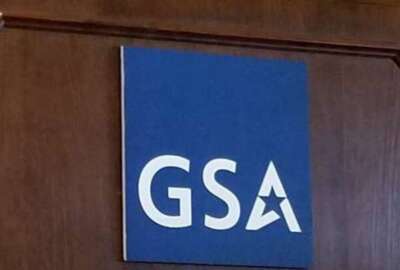SAIC, Leidos founder dead at 90
J. Robert Beyster (1924-2014) died Monday of natural causes. As the founder of SAIC and Leidos, Beyster believed in solving national security problems for the...
By Jory Heckman
Federal News Radio
Dr. J. Robert Beyster, founder of the technology and engineering company SAIC and defense contractor Leidos, died of natural causes on Monday at the age of 90. His daughter, Mary Ann Beyster, wrote that her father wore his favorite sailing clothes during his final moments.
A service member of the U.S. Navy and a graduate of the University of Michigan, Beyster began his career as a scientist working on the nuclear submarine program at Westinghouse in the 1950s. At the age of 45, he left his job at General Atomics to start his own company.
After a rocky first year, SAI, later the Science Applications International Corporation (SAIC), began turning a profit and soon expanded its reach with programs in national security, non-nuclear energy, health care systems, environmental business, information technologies, high-technology products and transportation.
“I had a very simple vision for the company in 1969. I wanted it to establish a place where we could work for our customers and do a good job, focus on the work, keep the costs down, and not be bothered by unnecessary bureaucracy and other considerations that made it hard to do research work. We happened to pick the right time to get going. A lot of good people were interested in finding such a place. Growing a large company was not in my head. I promised my wife it wouldn’t get over four people. Of course that changed pretty quickly.”
The company’s first major contract was with the Defense Nuclear Agency — now the Defense Threat Reduction Agency — and helped assess the effects of nuclear weapons.
“Thirty-five years ago I was the manager of a self-supporting government contract research organization at another company. What I observed was that the government was not always getting the best technical support from private contractors on its national security projects,” Beyster said in a 2004 company report. “I found this to be unacceptable because our country needed the best help it could get in the national security area. So, providing quality work on national security problems at a fair price was the major motivation behind the founding of SAIC in 1969. I believe we have succeeded in this.”
Retired Maj. Gen. Arnold Punaro, chairman of the National Defense Industrial Association, released a statement, calling Beyster a brilliant scientist and businessman. He also described him as “a visionary who saw the promise of the internet and the information technology revolution when most were still skeptics.”
“He was a plank owner of the companies that pioneered IT for the government. His business model was based on employee ownership and entrepreneurship,” Punaro said. “I was privileged to work at SAIC under his leadership and know firsthand of his total dedication to his employees and his customers. NDIA recognized his leadership with our highest award in 2004 and his legacy lives on in his books, numerous writings, the Foundation for Enterprise Development (FED), and the dozens and dozens of companies started by employees mentored by Dr. Beyster. Our national security is stronger because of his contributions as a scientist and a businessman.”
Beyster is survived by his wife Betty, his daughter Mary Ann, his sons Jim and Mark, two grandchildren, one great-grandchild and his sister.
RELATED STORIES:
Copyright © 2025 Federal News Network. All rights reserved. This website is not intended for users located within the European Economic Area.






